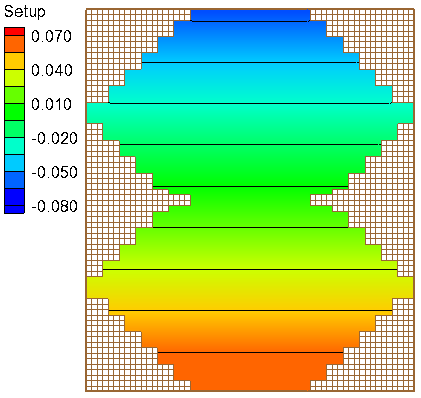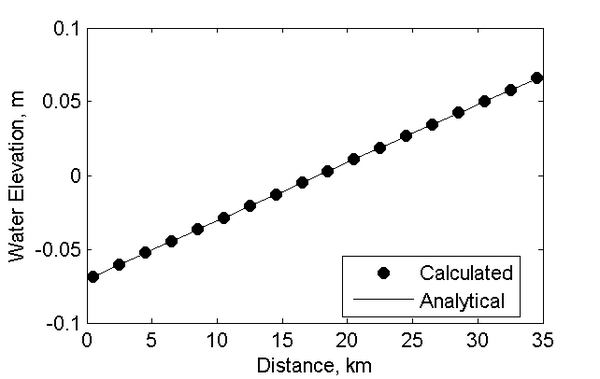Flow over a bump: Difference between revisions
Jump to navigation
Jump to search
(→Setup) |
(→Setup) |
||
| Line 10: | Line 10: | ||
\end{cases} | \end{cases} | ||
</math> |2=1}} | </math> |2=1}} | ||
{{Equation| <math>\begin{cases} n/2, & \mbox{if }n\mbox{ is even} \\ 3n+1, & \mbox{if }n\mbox{ is odd}\end{cases} </math> |2=1}} | |||
where <math>\eta</math> is the water surface elevation, <math>\rho</math> is the water density, <math>\rho_a</math> is the air density, <math>g</math> is the gravitational acceleration, <math>W</math> is the wind speed, <math>h</math> is the water depth, and <math>C</math> is a constant of integration. | where <math>\eta</math> is the water surface elevation, <math>\rho</math> is the water density, <math>\rho_a</math> is the air density, <math>g</math> is the gravitational acceleration, <math>W</math> is the wind speed, <math>h</math> is the water depth, and <math>C</math> is a constant of integration. | ||
Revision as of 23:12, 14 December 2010
UNDER CONSTRUCTION
Setup
The spatial domain consists of a rectangular
| Failed to parse (unknown function "\begin{cases}"): {\displaystyle z_b = \begin{cases} 0, & \mbox{if } x < 8 m } \\ 0.2-0.05(x-10)^2, & \mbox{if } 8 \leq x \leq 12 \\ 0, & \mbox{if } x>12 \\ \end{cases} } | (1) |
| (1) |
where is the water surface elevation, is the water density, is the air density, is the gravitational acceleration, is the wind speed, is the water depth, and is a constant of integration.
Model Setup
A computational grid with constant water depth of 5 m and irregular boundaries is used in order to test the model performance. The computational grid has 60 columns and 70 rows and a constant resolution of 500 m.
Results









